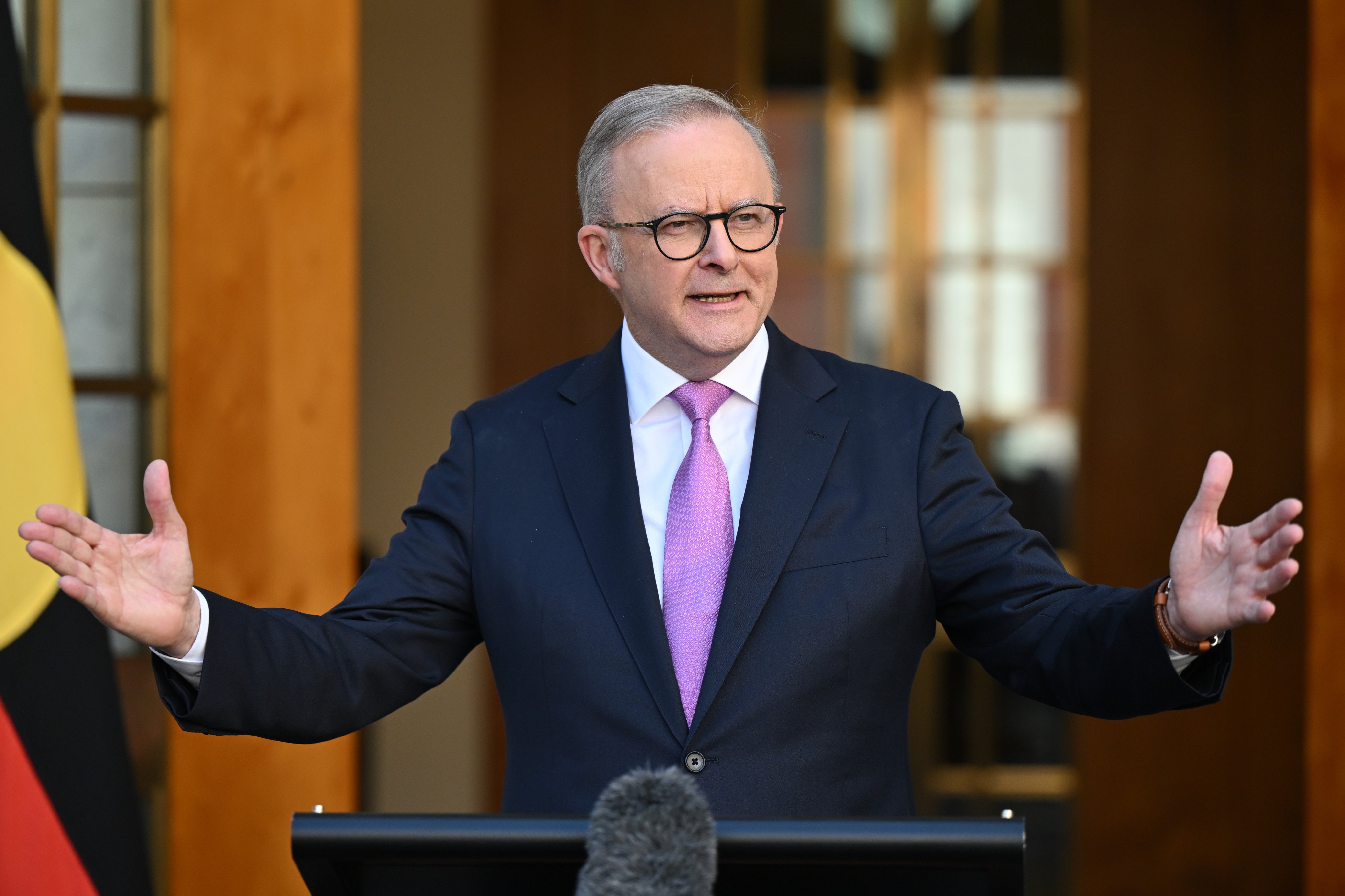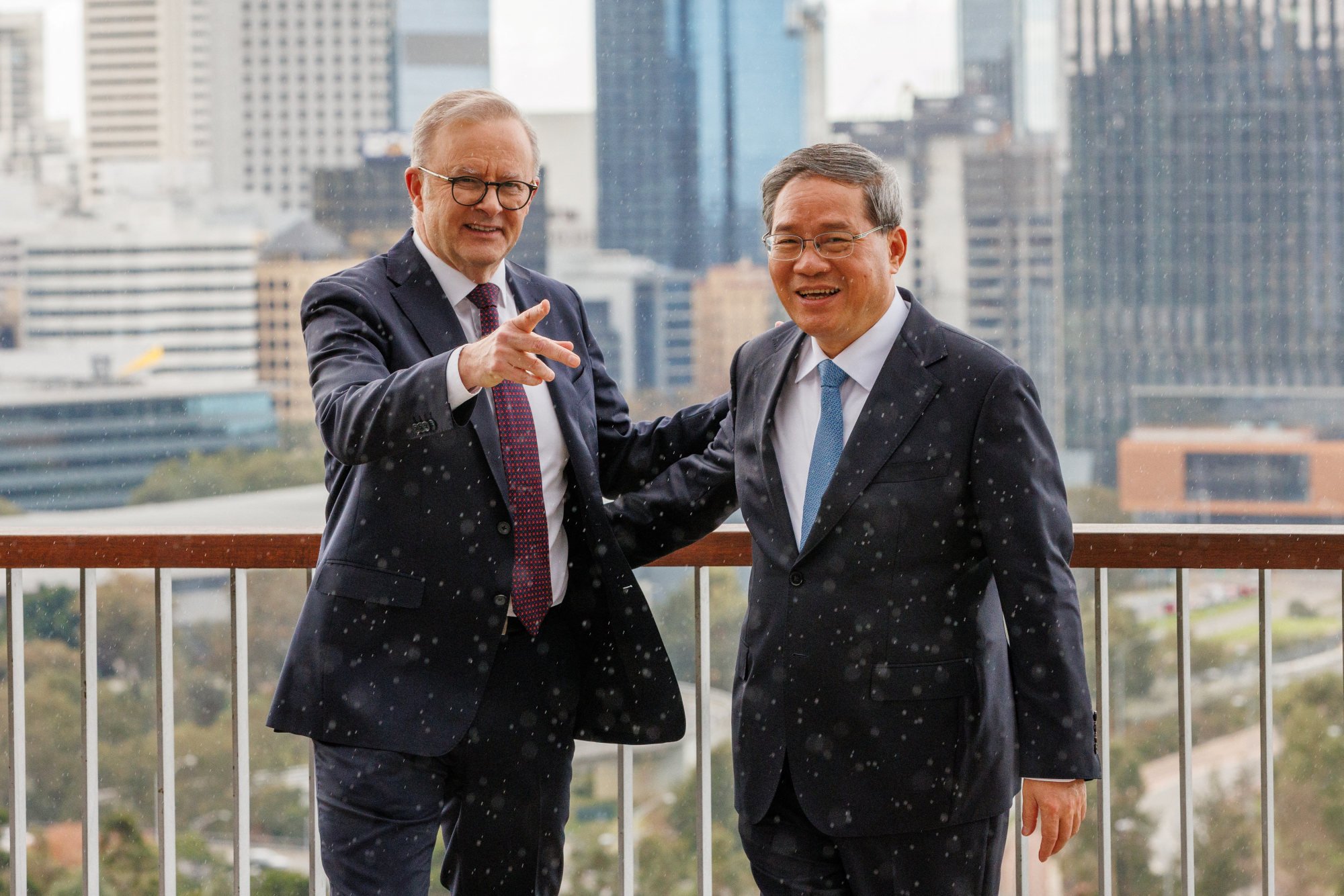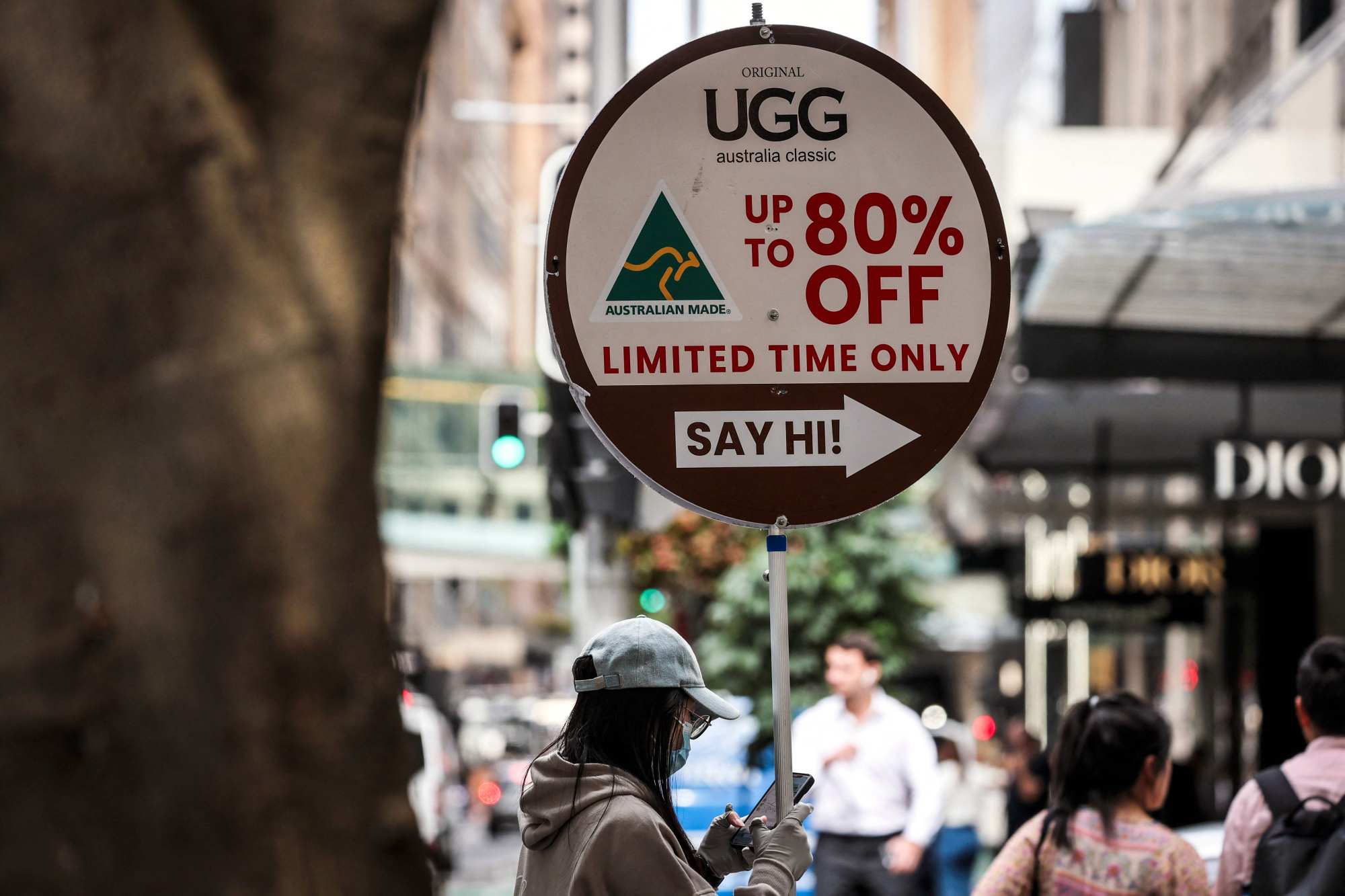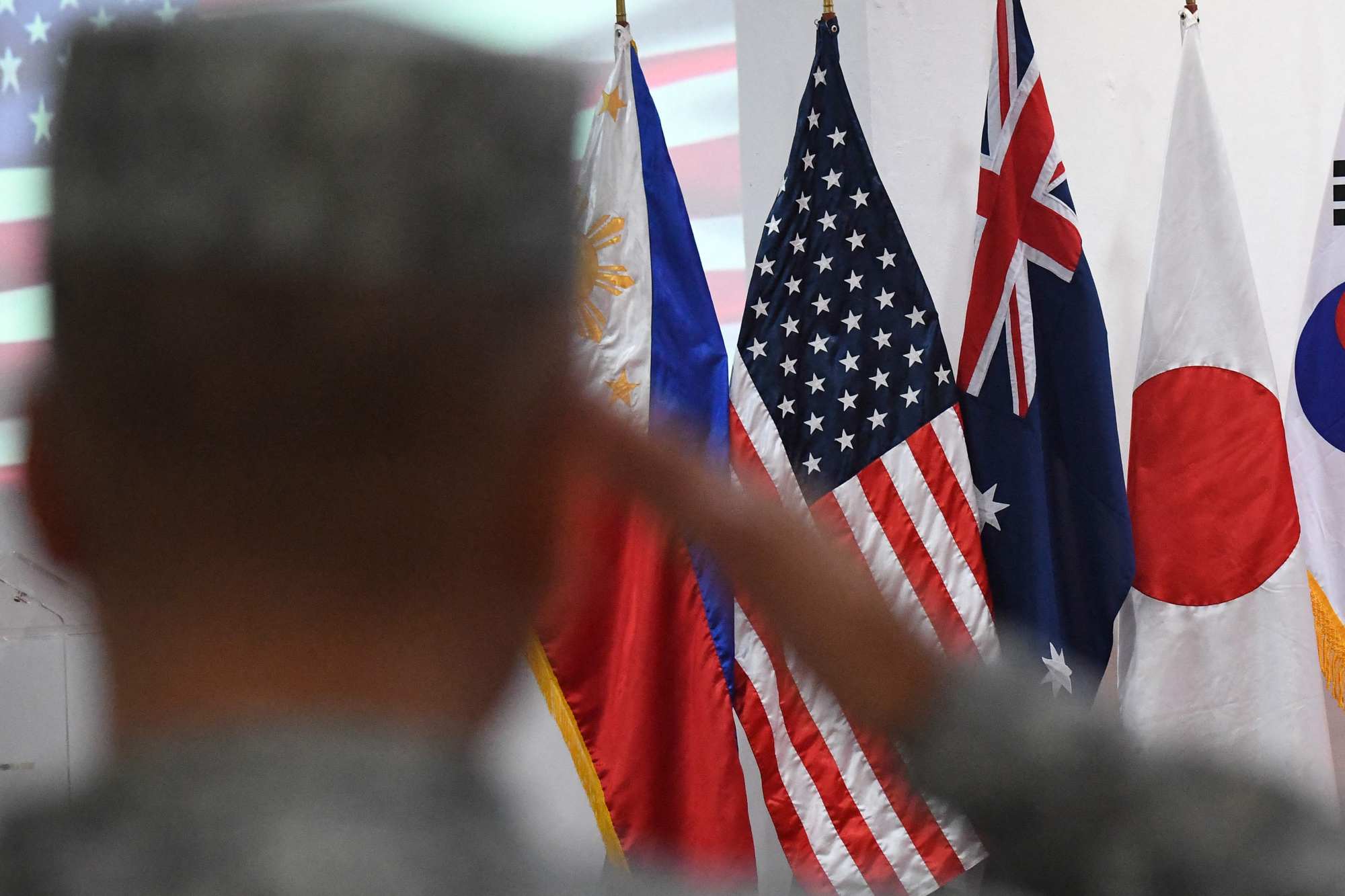No ‘radical changes’ from Australia as Albanese looks to shore up alliances
Canberra expected to continue managing close US relationship as it leans towards boosting ties with Southeast Asia, analysts note

Australia is expected to lean towards boosting security and economic ties with Southeast Asia, even as its incumbent leader emerges from the recently concluded election with a strong mandate that would see Canberra continue its close alliance with the United States.
Over the weekend, Australia’s Prime Minister Anthony Albanese secured a second term in office, as voters chose stability over change against a backdrop of global turmoil inflicted by US President Donald Trump.
Albanese’s victory makes him the first Australian prime minister in two decades to win re-election, with the outcome set to give him a stronger hand particularly in dealing with foreign affairs.
On Monday, Albanese said he had a “warm” conversation with Trump on tariffs and the Aukus nuclear submarine partnership, in a congratulatory phone call made by the US president.
Nick Bisley, dean of humanities and social sciences at Australia’s La Trobe University, said it was very unlikely the new Canberra government would move much from the close relationship with the US built up over the years.
Canberra had in recent years taken “quite critical positions” towards China, Bisley said, adding that the Albanese government had worked effectively to improve bilateral ties with Beijing.
“[However], the reality is that it is firmly tied to American strategy and will find it difficult to distance itself from US China policy,” Bisley said.
“The challenge facing the government is how to manage diplomacy so that Australia has some room for manoeuvre and is not isolated by China while broadly remaining in line with US strategic policy.”
During the pandemic years, ties between Beijing and Canberra sank to new lows after Australia called for an independent investigation into the origins of the epidemic which first witnessed a major outbreak in China.
Canberra also drew Beijing’s ire when it issued a travel warning saying Australians in China were at risk of arbitrary detention and warning citizens against travelling there.
The biggest casualty appears to be Chinese trade restrictions imposed on a slew of Australian agricultural and mineral products.

But relations were “back on track”, according to Chinese Premier Li Qiang after a visit to Australia last year.
Trade restrictions had eased by then and Albanese – during his first term in office – had also adopted a softer diplomatic approach to Beijing.
Bisley said like many regional countries – Japan, South Korea, Philippines, Singapore and India – Australia had important security ties to Washington but was unsettled by the “chaotic, unclear and mercurial policies” of the Trump administration.
“This shared predicament will be a motivation for them to improve ties and learn how to work more with one another and in turn in working with the US,” Bisley said.
Bilateral defence ties and cooperation are exceptionally close between Washington and Canberra, where their troops have fought together in every significant conflict since World War I.
In recent years, together with the United Kingdom, the two traditional allies established Aukus, a trilateral security pact with the aim of supplying nuclear submarines to Canberra.
Australia and the US also stepped up cooperation in the Quad, a bloc also comprising India and Japan, which is aimed at countering China’s growing influence in the region.
On Wednesday, Albanese said Indonesia would be the destination of his first overseas trip, where he would meet President Prabowo Subianto.
He described the visit as a “signal” of the importance his government placed on Southeast Asia and the wider region.

Philipp Ivanov, founder of geopolitical advisory Grasp or Geopolitical Risks and Strategy Practice, said “radical changes” were not expected in the second term of Albanese’s government, which was elected on the platform of stability and continuity.
“Managing the alliance under Trump will be [Albanese’s] No 1 priority,” he said, adding that Canberra needed to ensure that the US remained committed to Aukus and Australia continued to enjoy the lowest possible tariffs on its exports to America.
Last month, the White House imposed an import tax of 10 per cent on Australian goods but like levies imposed elsewhere ordered a 90-day pause a few days later.
Some “trade-offs” were possible, he said, to secure US commitment to Australia’s security, such as limiting Chinese investments in Australia’s mining industry or ending the 99-year lease of Port of Darwin to China’s Landbridge.
The port issue was also an election promise made by the government.
Apart from strengthening its partnerships in Asia, Europe and beyond, the Albanese government is expected to continue stabilising ties with China.
“Australia will be in a very difficult place if Trump starts putting pressure on the US allies with strong trade ties to China,” Ivanov said.
Last month, China’s ambassador to Australia Xiao Qian said in an opinion piece that joint resistance was “the only way” to stop the “hegemonic and bullying behaviour of the US”, appealing for Canberra’s cooperation.
However, Australia swiftly turned down China’s offer, with Albanese making it clear that Australians would “speak for ourselves”.

Noting that the key to Australia’s self-reliance was in Asia, Ivanov said Canberra must double down on security, economic and societal ties with Asia and invest in its expertise in the region.
“Australia’s trade and supply chains are deeply integrated into the region,” Ivanov said, adding that given the danger of Trump’s abandonment of alliances, Australia’s security will be even more dependent on itself and “a new equilibrium of power in Asia”.
For Canberra, this meant bringing its defence budget to above 3 per cent of GDP, as well as building defence partnerships with India, Japan, Southeast Asia, and the Pacific, he said.
“This should be supplemented by a credible and capable Australian defence force and deterrence strategy,” Ivanov added.
Australian defence spending was A$53.3 billion (US$34.1 billion) in 2023–24, or 2 per cent of GDP, and is expected to reach 2.4 per cent of GDP in 2027-28.
Ivanov noted that all of Australia’s neighbours in Asia – “shaken by Trump’s tariffs” – would now be looking beyond the US for economic opportunities and complementarities.
“The premium for Australian policy and economic stability has just gone up. This is a unique opportunity for Canberra to upgrade its regional economic engagement,” Ivanov said.